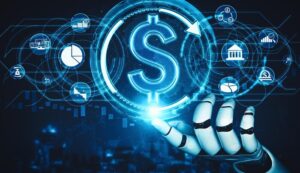The Future of Sustainable Business in 2025: Green Growth & Innovation

Sustainability is no longer a buzzword—it’s a business necessity. As climate change and environmental issues intensify, companies worldwide are shifting towards eco-friendly practices. By 2025, sustainable business models will dominate global industries, driven by consumer demand, government regulations, and corporate responsibility.
This article explores the future of sustainable business in 2025, highlighting trends, innovations, and opportunities for growth.
1. Rise of Green Consumerism
Consumers are becoming more eco-conscious than ever. In 2025, people will demand:
-
Products made from sustainable materials
-
Transparent labeling about sourcing and impact
-
Companies that actively reduce carbon emissions
Businesses that ignore this shift risk losing loyal customers, while eco-friendly brands will thrive.
2. Renewable Energy in Business

Fossil fuels are fading, and renewable energy is becoming the norm. By 2025, companies will increasingly adopt:
-
Solar and wind power for factories and offices
-
Battery storage solutions for energy efficiency
-
Green supply chains using electric vehicles
This transition is not only eco-friendly but also cost-effective in the long run.
3. Circular Economy Models
The traditional “make-use-dispose” model is being replaced with a circular economy, where products are recycled, reused, and repurposed. By 2025, businesses will:
-
Recycle materials into new products
-
Design goods for longer lifespans
-
Encourage product returns and refurbishing
This reduces waste and improves brand loyalty by showing environmental responsibility.
4. ESG (Environmental, Social, Governance) Metrics
Investors are increasingly focusing on ESG performance. By 2025, businesses will be evaluated not just on profits, but on:
-
Carbon footprint
-
Social impact (employee well-being, diversity, community support)
-
Governance and transparency
Strong ESG scores will attract investors, boost reputation, and ensure long-term sustainability.
5. Green Innovation & Technology

Technology will play a major role in sustainable businesses by 2025. Examples include:
-
AI-powered energy management to reduce consumption
-
Blockchain for supply chain transparency
-
Smart agriculture using IoT to reduce water and pesticide use
-
Eco-friendly construction materials for green buildings
Innovation will be the driving force behind a greener economy.
6. Challenges for Sustainable Business
Despite opportunities, challenges remain:
-
High initial investment in renewable technologies
-
Lack of awareness in small businesses
-
Greenwashing (false sustainability claims) damaging trust
-
Adapting global supply chains to eco-friendly models
Companies must balance profitability with responsibility to succeed in sustainability.
7. The Future: Profit with Purpose
By 2025, the most successful businesses will not only generate profit but also create positive impact. Companies that combine innovation with eco-consciousness will:
-
Build stronger brand loyalty
-
Attract top talent
-
Secure long-term financial growth
Sustainability will no longer be optional—it will be the foundation of business success.
Conclusion
The future of business in 2025 is green, innovative, and socially responsible. Sustainability will drive profits, growth, and global impact. From renewable energy to ESG metrics, companies must adapt to stay competitive.
Consumers, investors, and governments are aligned in demanding eco-friendly practices. Businesses that embrace sustainability now will not just survive—they will lead the future.


